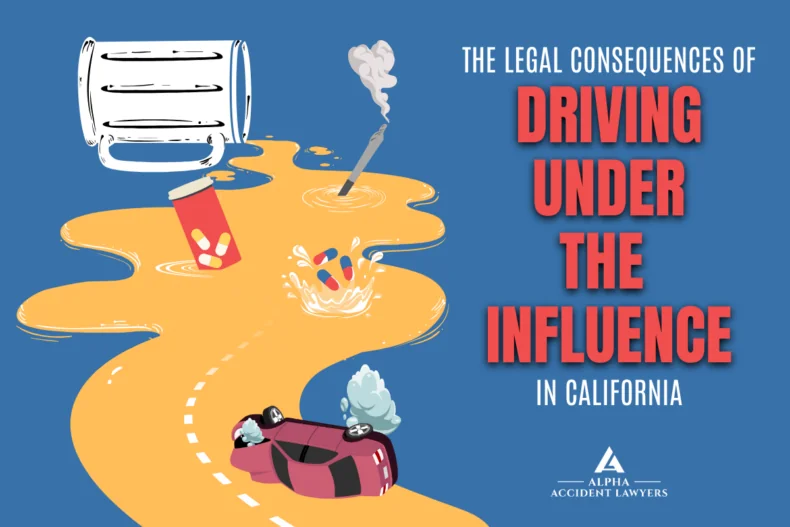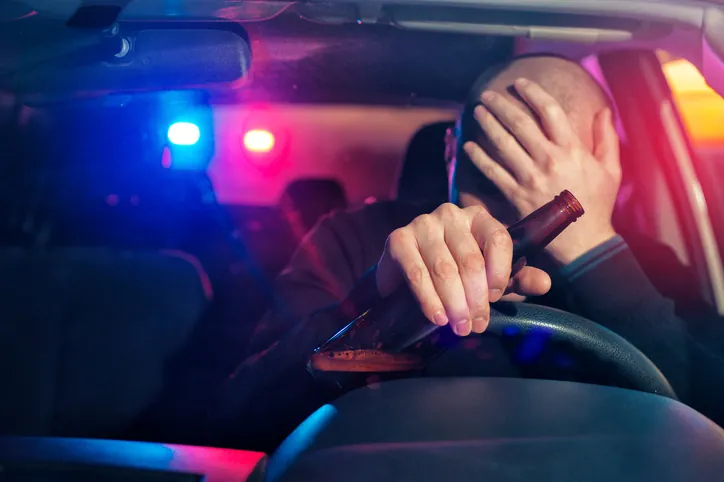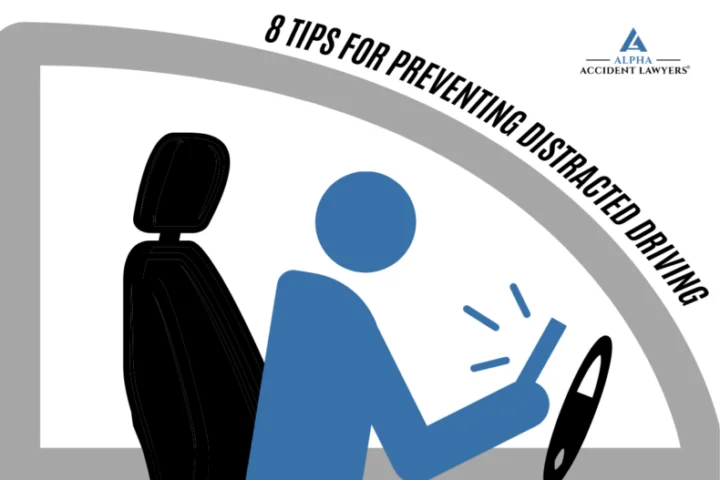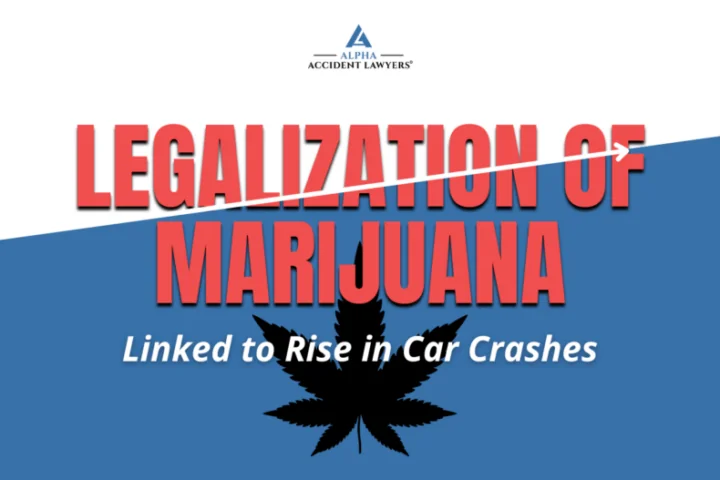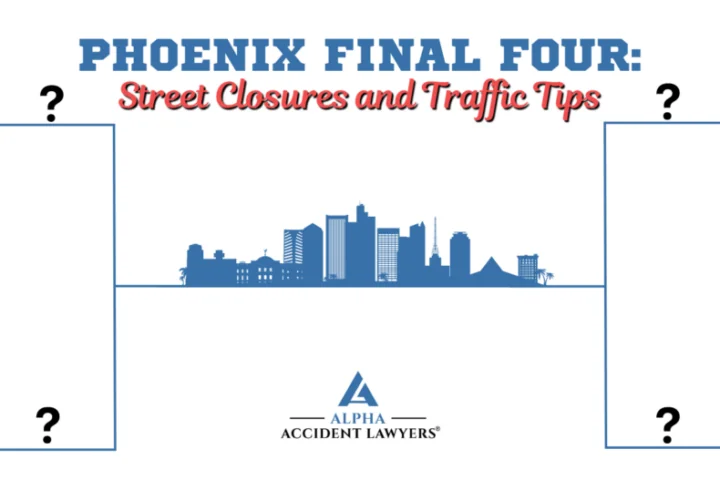How California Defines DUI and the Conviction Penalties
In California, driving under the influence (DUI) is a leading cause of traffic accidents. Drunk driving accounts for 32% of all traffic deaths in California. Most people associate driving under the influence with drunk driving, however, it also includes operating a vehicle under the influence of other intoxicating substances such as illicit drugs. Although California DUI penalties are severe, the Golden State tops the nation in DUI arrests and DUI-related crashes.
If you sustained injuries in an auto accident with an impaired driver, it’s crucial to consult with an experienced personal injury attorney. A Los Angeles car accident lawyer can help you hold the responsible party accountable for your injuries and losses. Read on to learn more about California DUI penalties, the effects of alcohol and drugs on driving ability, and the rising rate of traffic fatalities after the legalization of marijuana.
What Constitutes Impaired Driving in California?
Under California Vehicle Code Section 23152 VC, it is illegal to operate a motor vehicle while impaired by alcohol, drugs, or a combination of both. The legal limit for blood alcohol concentration (BAC) determines whether a driver is considered under the influence. The BAC limit for most adult drivers is 0.08%.
However, a motorist is considered driving impaired regardless of their BAC if they cannot operate their vehicle as safely as a sober person under similar circumstances and they have alcohol and/or drugs in their system.
Operating an automobile safely requires alertness, coordination, judgment, and perception. If any of the driver’s faculties are impaired, it can lead them to collide with other vehicles, pedestrians, or objects on the road. It’s important to note that motorists can still be found guilty of driving under the influence if their BAC is under the “legal limit”.
Alcohol-Impaired Driving
Traffic accidents involving at least one alcohol-impaired driver account for 30% of all traffic-related deaths in the US. In California, a driver is considered legally impaired if their BAC is 0.08% or higher. The BAC limits are notably lower for commercial drivers and for drivers who are under 21 years of age. However, even if your blood alcohol level (BAC) is not at the legal limit, it’s possible to still be arrested on suspicion of driving under the influence.
Drug-Impaired Driving
According to the 2021 National Survey on Drug Use and Health (NSDUH), in 2021, about people 11.7 million drove under the influence of selected illicit drugs, including marijuana. About 56% of drivers involved in serious injury and fatal crashes tested positive for at least one drug.
Driving under the influence of drugs, whether prescription medications, over-the-counter (OTC) drugs, illegal substances, or recreational drugs is also illegal in California. Drugs such as marijuana, cocaine, methamphetamine, and opioids can impair cognitive functions and motor skills. Many legally obtained and commonly used prescription and over-the-counter medications can affect a user’s ability to drive safely.
Impairing Effects of Alcohol and Drugs on Driving Ability
Alcohol Intoxication
Alcohol is a depressant that affects the central nervous system (CNS), leading to decreased coordination, impaired judgment, slowed reaction times, and reduced inhibitions. These effects can result in reckless driving behaviors and an increased likelihood of auto accidents.
Illicit Drugs
Illegal drugs like cocaine, ecstasy, and methamphetamine can cause impairments that can make it extremely difficult for drivers to maintain control of their vehicles and respond appropriately to traffic conditions. The effects can include dizziness, drowsiness, distorted perception, and impaired motor function.
Prescription and OTC Medications
Certain prescription medications, such as opioids, benzodiazepines, and sleep aids, can cause impaired reaction time and concentration. It’s essential for individuals taking prescription drugs to understand how their medications may affect their ability to drive safely. Cold and allergy medicines, antihistamines, pain relievers, and other OTC medications can also impact judgment and coordination. Side effects may include:
- Drowsiness
- Blurred vision
- Dizziness
- Nausea
- Inability to focus
Recreational Substances
Recreational substances like marijuana can impair cognitive function, alter perception, and decrease coordination. Using these kinds of substances before driving significantly increases the risk of accidents. A recent study found that people who drove after consuming cannabis exhibited a greater number of risky driving behaviors.
The Dangers of Mixing Alcohol with Medications or Marijuana
Mixing alcohol with medications or marijuana, also known as crossfading, can intensify the effects of weed’s main psychoactive ingredient, delta-9-tetrahydrocannabinol (THC), and heighten the effects of both on the body and brain.
According to NHTSA’s “Crash Risk” study, marijuana was the most frequently detected drug other than alcohol. The study also indicated that people using cannabis were more likely to be involved in crashes.
California DUI Laws
Each year, about 1 million DUI arrests are made in the US. Notably, these arrests represent only a small portion of the time impaired drivers are operating a motor vehicle on the road.
What is California’s Legal Limit for Blood Alcohol Content (BAC)?
In California, the legal limit for blood alcohol concentration (BAC) is 0.08% for drivers aged 21 and older. For commercial drivers, the limit is lower at 0.04%.
California’s Zero Tolerance Law for Underage Drivers
California has a zero-tolerance policy for underage drivers. This means that any driver under the age of 21 who is found to have a BAC of 0.01% or higher can face DUI charges, even if their BAC is below the legal limit for adults.
DUI Per Se Laws
California has DUI per se laws, which means that if a driver’s BAC is above the legal limit, they are automatically considered impaired. This evidence of the violation is enough for the police to make an arrest without additional evidence. Therefore if a police officer pulls over a driver they suspect is intoxicated, and the driver has a BAC of 0.08%, they may get a “per se” DUI charge.
Per se drug DUI laws in California don’t specify a legal limit for DUI drug offenses. Therefore, a motorist can be arrested for having any measurable amount of drugs in their blood, including trace amounts.
California DUI Penalties
Drunk Driving Penalties
First DUI
If this is the motorist’s first and only offense, they will likely receive a misdemeanor DUI charge. Penalties may vary depending on factors such as BAC level and whether there was an accident that caused injuries. A first-time DUI offense in California can result in the following penalties:
- Fines between $390-$1,000
- Completion of a 3-month or 9-month court-approved mandatory DUI education program
- Possible 4-month license suspension
- Up to 6 months of jail time
- You may be required to install an ignition interlock device (IID) in your car for 4-6 months
Penalties may vary depending on factors such as BAC level and whether there was an accident that caused injuries.
Second-Time DUI
A second DUI within ten years of the first offense can lead to increased penalties:
- 3-5 years of summary probation
- Fines between $390-$1,000
- Up to one year in county jail
- Completion of an 18-month or 30-month court-approved mandatory DUI education program
- Mandatory installation of an IID in your car for one year
Third-Time DUI
A third DUI offense within ten years carries severe consequences, including:
- 3-5 years of informal probation
- Fines between $390-$5,000
- Up to one year in county jail
- Completion of a 30-month court-approved mandatory DUI education program
- Mandatory installation of an IID in your car for 2 years
Drugged Driving Penalties
Drugged driving penalties for a drug-based DUI conviction are generally similar to a drunk driving conviction.
First Offense
First-time offenders of drugged driving in California may face similar penalties to those of alcohol-impaired driving. Penalties may include:
- Up to 6 months in a county jail
- Minimum fine of $390
- Possible 6-month license suspension
Second Offense Within 10 Years
- Up to one year in a county jail
- Driver’s license suspension of 2 years
- Minimum fine of $390
- Mandatory completion of a DUI program
Third Offense Within 10 Years
A third drugged driving offense within ten years can result in more severe penalties including:
- Between 120 days and one year in a county jail
- Driver’s license suspension of 3 years
- Minimum fine of $390
- Mandatory completion of a 30-month DUI program
Past DUI convictions can increase your penalties significantly, especially if it was a felony DUI. A person with a felony DUI conviction may face up to one year in prison and a 4-year revocation of their license.
Car Accident Rate in California After Legalization of Marijuana
California’s Proposition 64, the Adult Use of Marijuana Act, went into effect on November 9, 2016. This proposition made it legal for individuals 21 and older to use and grow marijuana for personal use. While smoking is permitted in a private residence or at a business that is licensed for on-site cannabis consumption, it’s illegal to smoke while driving or to drive a vehicle under the influence of cannabis.
Following the legalization of marijuana in California, concerns quickly surfaced regarding its impact on road safety. Studies suggest that states with legalized recreational marijuana have experienced an increase in car accidents involving impaired drivers.
A new study from the University of Illinois Chicago School of Public Health found that there was a significant increase in traffic accident fatalities in four of the seven states used in the study that have legalized recreational markets. On average, states with existing medical cannabis programs were associated with a 10% increase in motor vehicle accident deaths. California was classified above the average with a 14% increase in traffic fatalities.
Top Car Accident Lawyers in Los Angeles
If you were injured in an auto accident caused by a drugged or drunk driver, it’s crucial to consult with an experienced car accident lawyer who will fight for your rights. A Los Angeles personal injury attorney can help you navigate the legal process and pursue full and fair compensation for medical expenses, lost wages, pain and suffering, and other damages.
At Alpha Accident Lawyers we are dedicated to helping injured victims obtain justice. Our personal injury lawyers have recovered millions of dollars in compensation for our clients. We can help you hold the responsible party accountable for their actions. Call our law firm today for a free consultation.
